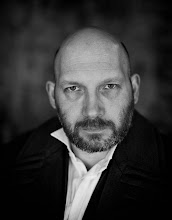I read a lot. I mean, I read an awful lot. Mostly (in fact almost entirely) because I enjoy it. There’s nothing quite like a good book – and, on occasions, there’s nothing like a bad book, either. (I think it was the British writer Chaz Brenchley who once opined that every book has at least one Ideal Reader).
Over the last while my constant fictional companions have been writers such as Michael Moorcock, Karl Edward Wagner, M.R James, Robert E. Howard and Clark Ashton Smith, writers whose work has always had a profound effect and influence on me.
Lately, though, I have found myself delving back into much older fiction – novels such as Charles Maturin’s splendid Melmoth the Wanderer, Horace Walpole’s masterpiece of atmospheric terror The Castle of Otranto and such perennial favourites as Stoker’s Dracula, Shelley’s Frankenstein, Stevenson’s The Strange Case of Dr Jekyll and Mr Hyde and, always, the fabulous tales of Edgar Allan Poe.
In part, it’s about going back to the deeper roots of fantastic fiction, seeking out those writers who shaped the modern concept of the fantastic. Lord Dunsany, for instance, exerted a great influence upon writers such as Howard and Lovecraft (HPL once wrote ‘there are my Poe pieces and my Dunsany pieces but, alas, where are my Lovecraft pieces?’) and even writers such as H.H Ewers had an influence despite the fact that they were contemporaries: Ewers’ short story The Spider, for instance, helped to shape Lovecraft’s The Haunter of the Dark.
It’s also about understanding where you come from as a writer, I think, and about understanding the way in which fiction is and was crafted.
To modern eyes, novels like Melmoth the Wanderer are difficult, ponderous things: even The Castle of Otranto, coming in at a scant hundred pages, can be a challenge to read, while Dracula, that paragon of vampire fiction, has little in common with the current trends in the modern vampire story. Yet those novels and others like them have an undeniable power – the language is rich, the imagery vivid – books that celebrate rather than apologise for the written word.
Every writer has his or her influences, but sometimes you have to look beyond that, to find out who and what influenced the writers you admire. My love of Jack Vance, for instance, led me to Clark Ashton Smith, my love of Stephen King led me to Franz Kafka and Shirley Jackson, it was Karl Edward Wagner who led me to Melmoth the Wanderer and Robert E. Howard who led me to Lord Dunsany.
Reading, or re-reading, the work of older writers is, I think, always a valuable thing to do. After all, if you don’t know where you came from, how are you ever going to know where you’re going?
Three Wishes From Dr. Devil
-
*Horror Hero Monday* once again, and this time it's a trio of 'em all
coming together into one big *Prize (Comics) *fight to the finish: *Dr.
Devil, Bull...
2 days ago



It's been about 20 years (!) since I've read Melmoth the Wanderer; I'd love to hear your review!
ReplyDelete